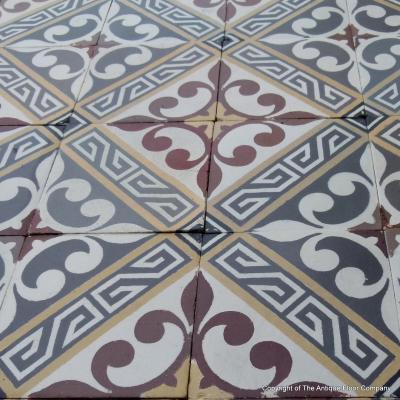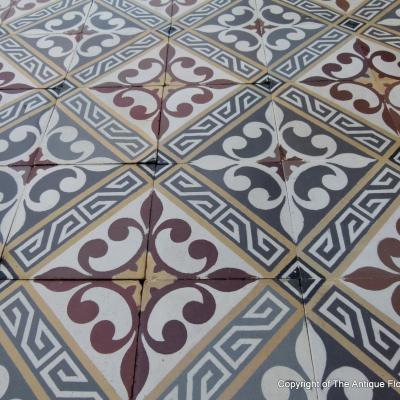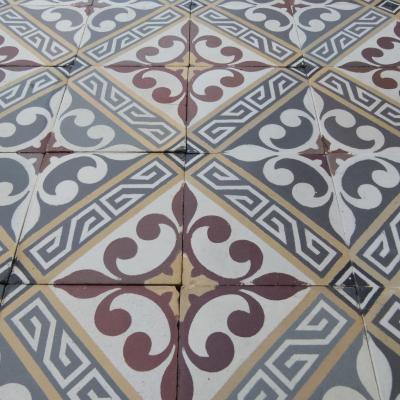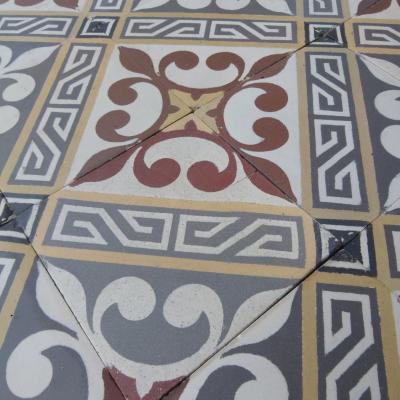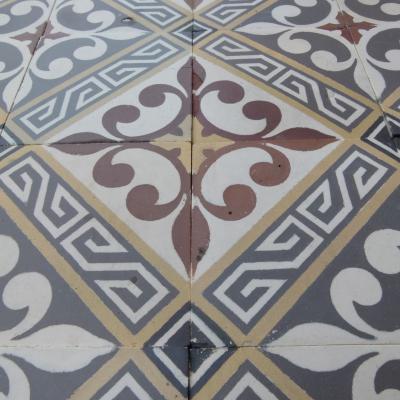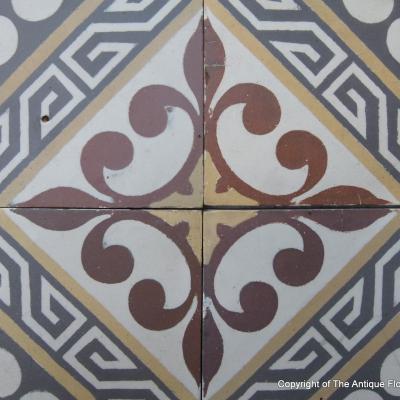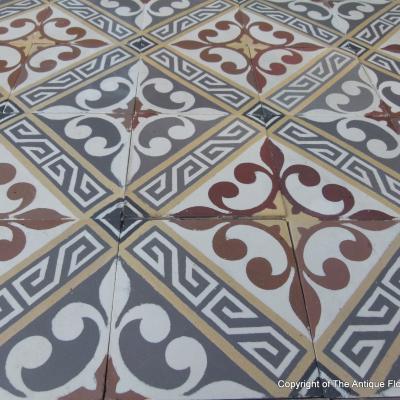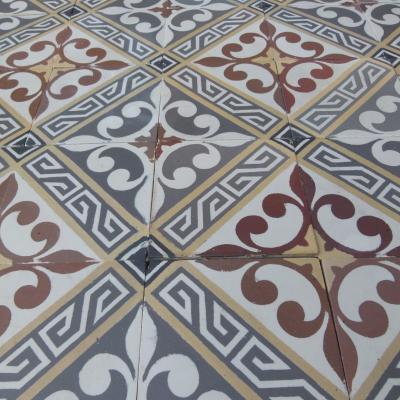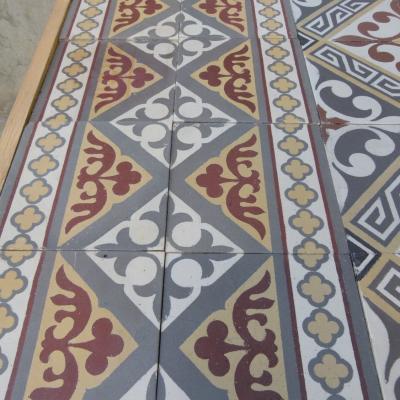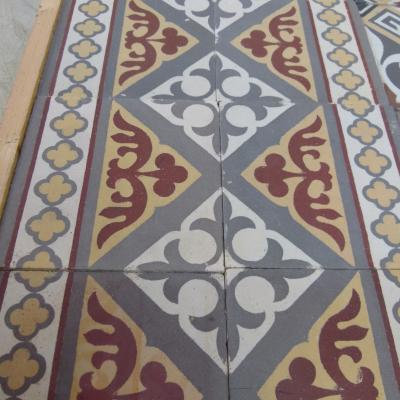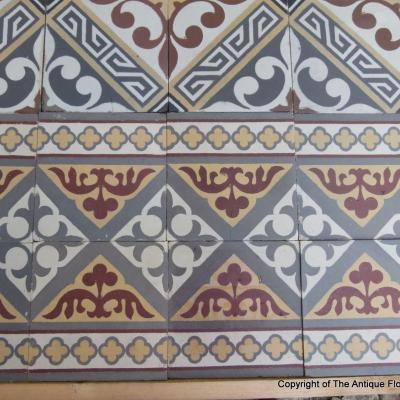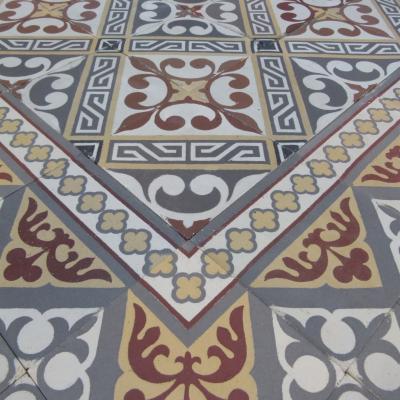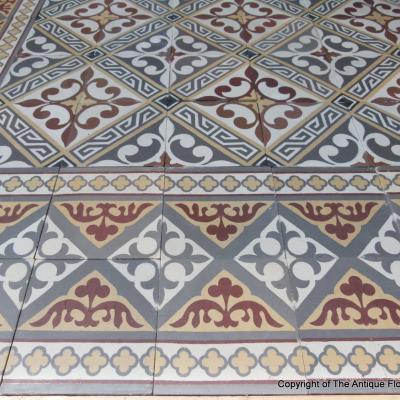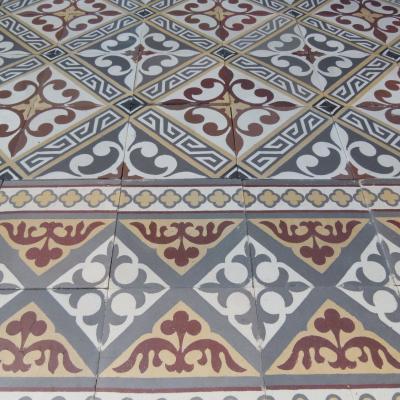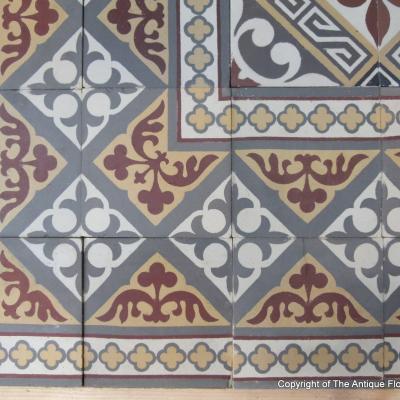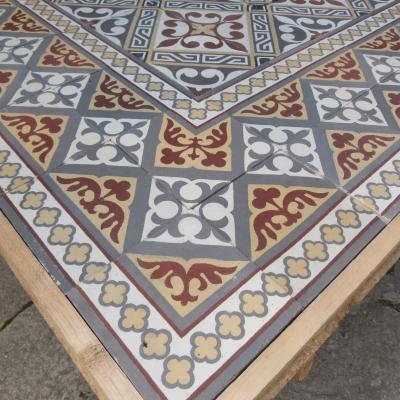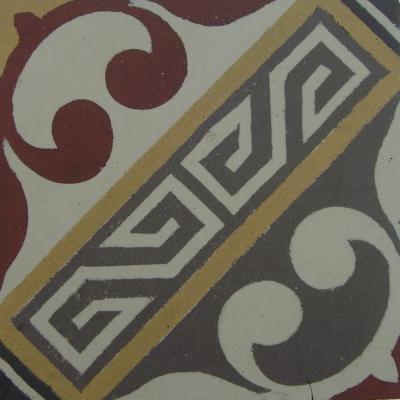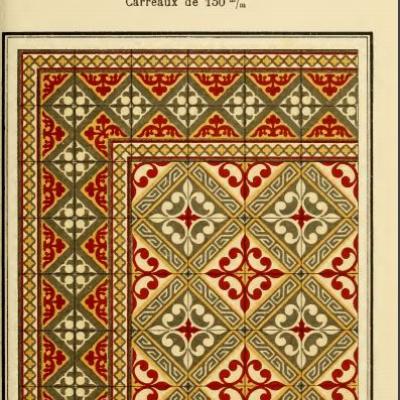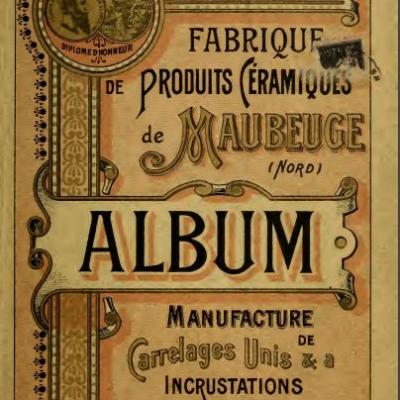+/- 9m2 antique French ceramic floor c.1915-1920
A beautifully designed antique French ceramic floor complete with its double border tiles, the tiles are reverse marked Manufacturers Ceramiques - Gare de Douzies Maubeuge and date from between 1915 and 1920. The ceramic is excellent and with a good slip. The motifs are ornate but the pattern is strongly geometrical and the palette is subtle with the motifs anchored on mid greys, burgundy, mustard and off-white.
The floor has cleaned very well and the tiles are in good condition revealing an appealing antique patina; some display small groutable chips but having removed years of old dirt, mortar and wax during the cleaning process the end result is a quality, heavy ceramic. A c.1.2m2 randomly selected section of the floor is shown in the photo gallery and being a highly fired ceramic tile the floor can be laid inside or outside of the home.
A handmade tile, produced in small batches, there are some variations in tile size (150mm / 151mm sq ) and tile thickness. As is evidenced in the photo gallery there are also subtle variations in the tones of the slip colour.
We will be happy to assist in evaluating the fit of the floor in your chosen space, without obligation.
Tile quantities, give or take one or two:-
FIELD - 330 tiles - 7.4m2 / 80 sq ft
LARGE BORDERS - 60 tiles plus 3 external* and 4 internal corners - 1.51m2 / 16.2 sq ft. or 10 linear metres single lay, 5 linear metres double lay
* one external border corner will require to be mitre cut if a back to back lay is desired.
NOTE
Antique tiles were most commonly made in single or two tile moulds. Before current computer automation methods their moulds were made my hand and the colour slips mixed by eye. Kiln temperatures could also be variable, as could the firing time. The result is that often tiles display subtle size and thickness variations and there can be tonal variations in colours, owing to the slip mixing and/or firing time. All of this makes these handmade tiles unique and adds to their charm. Some floors display their subtle variations in size and tones, some not, but when photographing we always take a random section of the floor so that it is representative of the whole. A tiler should always dry lay a section of the tiles to familiarise himself with them before starting to fix lay.
MAD59



